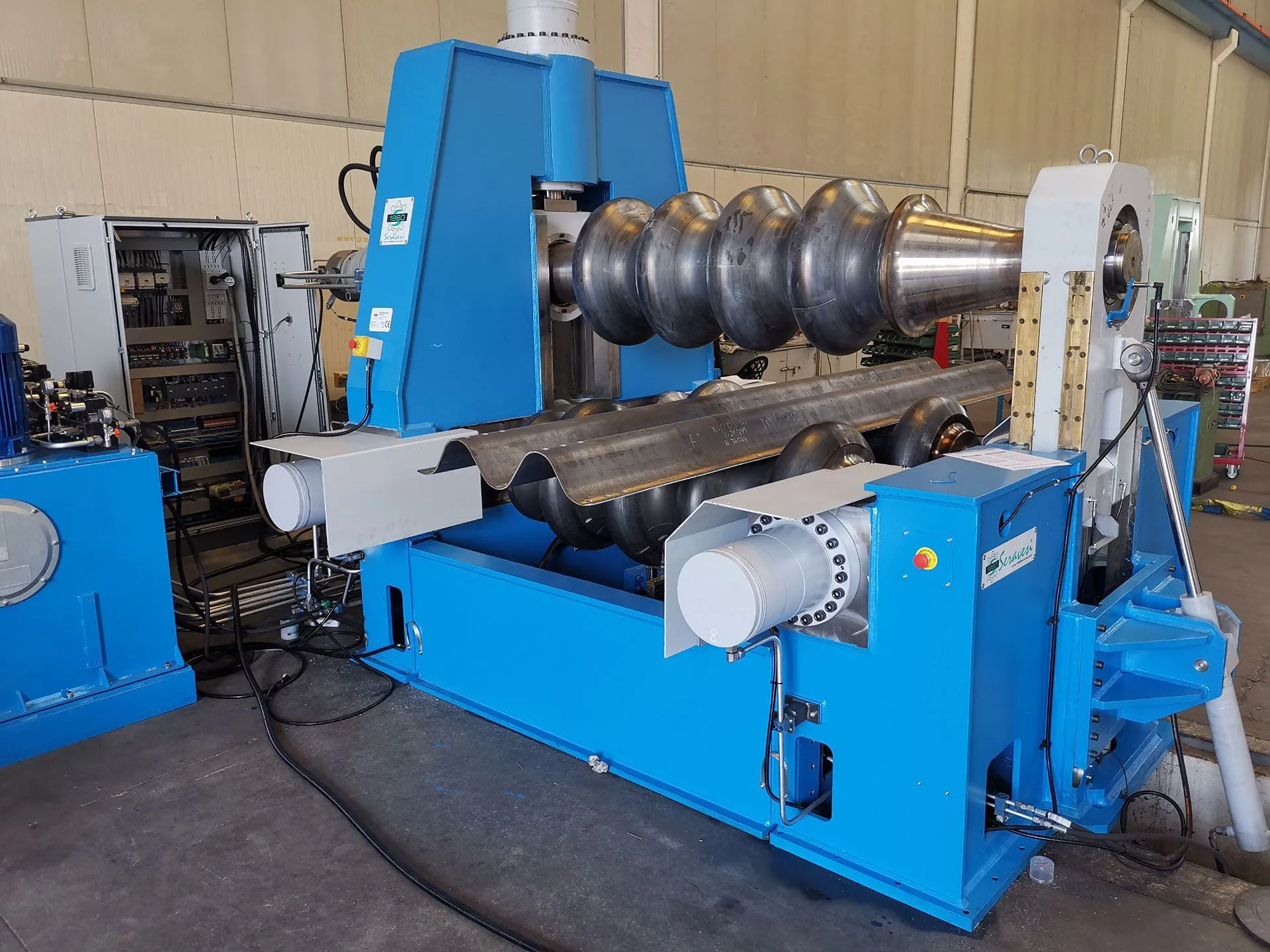Discover how special plate rolling machines drive innovation and efficiency in heavy-duty manufacturing. Learn about their benefits, applications, and why they're a smart investment.

In today’s competitive manufacturing landscape, precision and adaptability are not just advantages—they're necessities. For industries that rely on forming thick or high-strength metal plates, special plate rolling machines are game-changing tools. Unlike standard plate rollers, these custom-engineered machines are designed to meet complex, high-demand specifications, enabling manufacturers to achieve superior results in less time.
- What Are Special Plate Rolling Machines?
- Key Benefits Special Plate Rolling Machines
- Industry Applications of Special Plate Rolling Machines
- Why Invest in Special Plate Rolling Machines?
What Are Special Plate Rolling Machines?
Special plate rolling machines represent a cutting-edge solution for industries that demand high levels of precision, strength, and adaptability in their forming processes. These machines go beyond the standard plate rollers typically used in fabrication shops. They are designed and engineered to handle materials and geometries that are challenging or even impossible to process with traditional equipment. Their primary function remains the same—bending and forming metal plates—but their scope, capabilities, and performance are enhanced through advanced technology and customization. Whether used for rolling extra-thick steel, conical parts, or complex profiles, special plate rolling machines deliver superior results with a focus on reliability and repeatability.
Key Benefits Special Plate Rolling Machines
The adoption of special plate rolling machines offers manufacturers a host of significant benefits that directly impact productivity, quality, and cost-efficiency. These machines are tailored to meet the specific needs of each application, making them far more capable than standard models when it comes to handling high-strength alloys, unusual shapes, or large-format materials. Their advanced features—such as CNC automation, multi-roll systems, and servo-driven components—allow operators to achieve exacting tolerances with greater consistency and fewer errors. In addition to mechanical superiority, special plate rollers can also contribute to safer operations and reduced cycle times, making them a smart investment for high-performance production environments.
- Precision & Control: Four-roll models maintain constant material clamping via double-pinch, enabling tighter tolerances and greater tracking throughout the bend.
- Time Efficiency: Integrated pre-bending and final roll in one pass reduce cycle time by up to 50% compared to three-roll machines.
- Operational Safety: Horizontal feeding, stable clamping, and secured handling lower operator risks and handling errors.
- Versatility: Capable of rolling cylinders, cones, variable-radius shapes, ovals, and more—with optional CNC allowing complex profiles.
- Robust Construction: Heavy-duty frames with off-the-shelf components ensure long lifecycle and easy maintenance .
Industry Applications of Special Plate Rolling Machines
Special plate rolling machines find their place in a wide variety of industries, each of which requires precision, strength, and customization in its manufacturing processes. These machines are especially valuable in sectors where traditional methods fail to deliver the required performance or efficiency. From the construction of massive steel towers for wind turbines to the fabrication of pressure-resistant vessels for oil and gas, the ability to roll thick and often difficult materials is a common demand. Aerospace and defense manufacturers rely on them for lightweight, precision-formed components that meet strict regulations. Even in shipbuilding and infrastructure, their ability to produce curved structural elements makes them indispensable.
- Shipbuilding: Forming large hull sections, bulkheads, and curved decks.
- Wind Energy: Rolling thick steel plates into tower sections and nacelle parts.
- Oil & Gas / Pressure Vessels: Crafting thick-walled tanks and pipes with precise curvature .
- Aerospace & Defense: Producing tight-tolerance cones, cylinders, and structural components.
- Heavy Industry: Fabricating silos, large cylinders, and structural parts for infrastructure.
Why Invest in Special Plate Rolling Machines?
Investing in a special plate rolling machine is a strategic decision that can transform a company’s production capabilities. These machines enable manufacturers to take on more complex and higher-margin projects, often expanding their service offerings into new industries. The technological enhancements built into special machines reduce reliance on manual labor and subcontracting, which in turn increases operational control and decreases lead times. Beyond the technical advantages, ownership of this kind of equipment sends a strong message to clients and partners: that your company is committed to quality, innovation, and scalable growth. This positions your business not just as a fabricator, but as a leader in advanced manufacturing.
- Advanced Capability: Enables in‑house production of complex geometries that would otherwise be outsourced.
- Quality Control: Maintains consistency through automated processes and tight tolerances.
- Productivity Boost: Faster cycles and automation reduce labor costs and turnaround time.
- Strategic Edge: Supervising the entire fabrication process offers flexibility and speed in responding to new contracts or custom orders.
As demand grows for high-strength, precision‑formed metal components, special plate rolling machines are essential for modern manufacturers. They merge power, accuracy, versatility, and safety—empowering businesses to lead in heavy fabrication sectors like shipbuilding, aerospace, energy, and infrastructure. Investing in one positions your business for expanded capabilities and improved competitiveness.